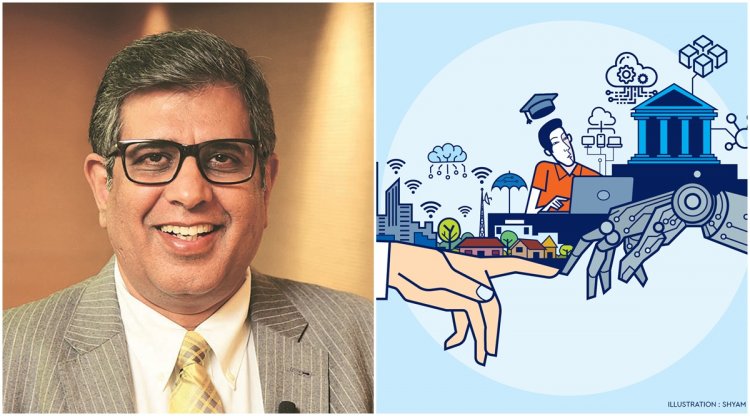Embracing transformative tech for a better and a stronger 2022
From fintech to greentech, businesses across sectors are embracing transformative technologies to develop relevant solutions, reach out to the underserved, and align with sustainable development goals

By Alok Ohrie
This year has been a year of pushback, of restructuring, of building back better. Technology investments intensified, a host of multi-cloud and hybrid cloud technologies proliferated, and a plethora of AI, blockchain and data-driven solutions began to enter the market. India is now among the top two countries globally in digital adoption, with the digital transformation market projected to reach $710 billion by 2024, growing at a CAGR of 74.7% compared to the global growth rate of 16.5%. From fintech to greentech, businesses across sectors are embracing transformative technologies to develop relevant solutions, reach out to the underserved, and align with sustainable development goals.
The recent worldwide efforts to combat the pandemic have demonstrated that technology can play a vital role in healthcare. Data and AI hold special promise with the potential to predict epidemic outbreaks, enable remote diagnostics and precision treatment, and accelerate drug discovery. Bolstered by technology rollouts, the healthcare sector in India is showing strong growth of over 16% CAGR, and is expected to reach $372 billion by 2022. Digital solutions in healthcare span a diverse spectrum, from cloud-connected diagnostic field devices to AI-assisted cancer detection, from bio-engineered artificial corneas to 3D printed, sensor-embedded bionic prosthetic arms. NASSCOM estimates that data and AI-led transformation would contribute $25 billion to $30 billion by 2025.
India’s agriculture sector, valued at $276.37 billion in FY20, attracted investments worth $190 million into agritech. More than 1300 agriculture startups in the country are using AI, blockchain and data-driven technology to increase productivity, create market linkages, predict weather and aid crop production through automation. India now ranks third in terms of agritech funding and number of startups, and the market is expected to grow to $30billion-$35 billion by 2025.
Education technology, or edtech, is transforming the education landscape in India. Since students were compelled to continue learning from home, the interest in online courses has grown substantially, with an 83% increase in the subscriber base from March 2020. Trust in online education has also grown, resulting in a four-fold rise in funding. Cloud based collaborative tools, MOOCs, assessment and grading platforms have become the norm rather than a luxury. AI-assisted adaptive learning solutions, blended learning models, gamification and spaced repetition are fast finding adopters in the new normal of education. The sector has seen investments upwards of $4 billion since 2020.
We, at Dell Technologies, believe that the new year will reveal smarter technologies, calling for a greater role for data, accelerated innovation and technology adoption. The proliferation of new technologies will demand greater flexibility from cloud and edge platforms, so that local IoT and data management edges will have to be delivered as software-defined packages. Enterprise adoption of 5G will accelerate in 2022, as more modern, capable versions of 5G become available. A broad infrastructure comprising edge, private mobility, data management and security is likely to emerge.
With greater digital adoption and connectivity, more sophisticated threats have emerged. Security will remain a concern for the industry, and newer paradigms will come into play to mitigate some of these risks. We will evolve from automated threat detection to prevention and response with initiatives like SOAR (Security Orchestration Automation & Response), CSPM (Cloud Security Posture Management) and XDR (Extended, Detection and Response).
The automotive industry will continue to transform on several fronts, shifting gears from a mechanical ecosystem to a data and compute industry, as well as from internal combustion engines to electrified vehicles. Software and compute content within automobiles will continue to grow at a rapid pace, with Advanced Driver Assistance Systems (ADAS) and autonomous vehicles becoming a reality. Dell Technologies is engaged with many of the world’s major automotive companies, and we expect the industry to evolve ever more rapidly in favour of rapid digital transformation in the coming year.
Demand from IT customers will be strong and continue to grow across the spectrum—our record quarterly performances this year are an indication that Dell Technologies has been able to meet this increased demand and deliver technology solutions for a rapidly evolving digital ecosystem. We envision a world where humans leverage technology to reap significant outcomes with efficiency and speed. We will continue to drive innovation through digital transformation, aiding the journey towards increased productivity and economic prosperity.
The writer is president and managing director, Dell Technologies India







